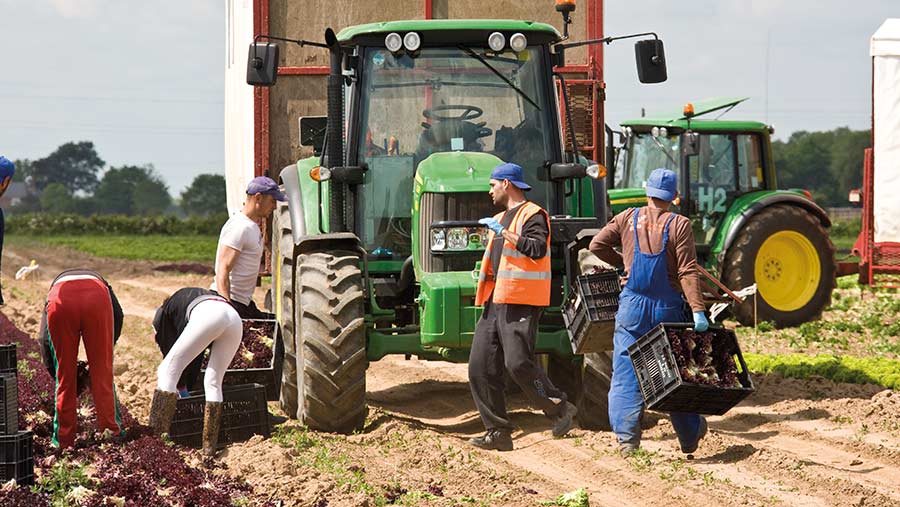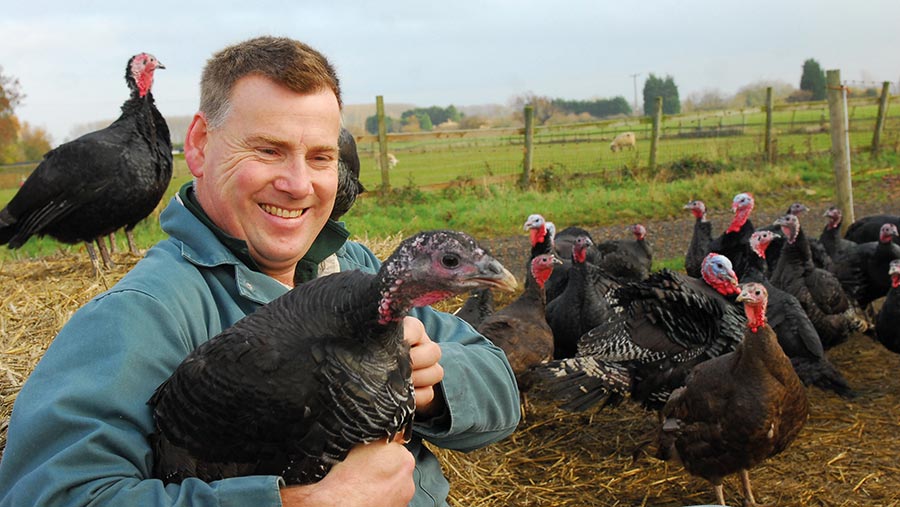Farm labour crisis deepens as settlement deadline passes
 © Tim Scrivener
© Tim Scrivener The UK food supply chain is on the verge of breaking down as post-Brexit labour shortages reach crisis point, sector leaders have warned.
British Meat Processors Association chief executive Nick Allen said that, on average, meat processing companies have five times the number of vacant positions than before Brexit.
Pay rates have risen by 10% in the past year as businesses try to tempt workers to stay, but this is unsustainable and food costs will have to rise to compensate, Mr Allen said.
See also: Business Clinic: Does a farm shop need planning permission?
Companies are looking at imminently closing UK production lines and buying in product from overseas, he added. There is an increasing exodus of EU workers, and the UK is also approaching the busiest period – the run-up to Christmas – so things will get worse, Mr Allen warned.
Jack Ward, chief executive of fresh produce body the British Growers’ Association, said the sector had entered completely uncharted territory. The permissible allowance of 30,000 seasonal workers was not enough, Mr Ward said.
Worker numbers in the sector are down by about 11% since the Brexit process began and uncertainty is growing. If a company only has 90% of its target worker numbers, they will be chasing the crop at peak fitness, Mr Ward said. “This is important because we face competition from imports, and contracts could be lost,” he said. “People are holding investments and reducing planting areas, so our cropping will decline over the coming years.”
In the dairy sector, about 40% of farms employ overseas workers and a total of 650-1,000 overseas workers are recruited annually, according to the Royal Association of British Dairy Farmers (RABDF).
RABDF managing director Matt Knight said growing concerns about labour supply meant one in three dairy farmers were considering quitting. The issue cannot be resolved overnight and farmers need a longer transition period, Mr Knight said.
“We have been asking the government for some reprieve by including workers on the Migration Advisory Committee’s shortage occupation list. Having access to these workers in the short term will allow the sector to implement medium- to long-term solutions,” he said.
Case study
John Franklin, of Bedfordshire-based Franklins of Thorncote, produces 3,000 birds for the Christmas market. The farm employs 10 workers throughout the year, but needs a dozen more in December to pluck and dress birds.
For 35 years, Mr Franklin has used overseas labour, with Romanians the mainstay in recent years. But the Romanian teams have said they will not be coming back. The extra paperwork and language barriers in form-filling have added to a sense that they are no longer welcome after Brexit, said Mr Franklin.
“Even though we pay for flights and a wage well above the minimum level, it is easier for them to find seasonal work in Europe,” he said.

John Franklin © Franklins of Thorncote
The farm has already experienced what may lie ahead – the Romanian team couldn’t come last year due to Covid-19 restrictions.
“We recruited locally, but over the four weeks ended up employing twice as many extra staff to cope.
“The Romanians are highly skilled and work quickly and efficiently. The new recruits needed training before they could even start. It meant processing was slow and our wage bill doubled,” Mr Franklin said.
“We cannot pass on this cost to the customer, so will probably cease on-farm processing altogether.”
Deadline for EU Settlement Scheme applications passes
The industry warning over labour shortages came as the deadline for EU Settlement Scheme applications passed on 1 July. Any business employing staff without pre-settled status, settled status or confirmation of application (COA) forms will be liable for fines of up to £20,000 for each worker, up to an unlimited total amount. The business owner may also face criminal charges and up to five years in prison.
Alec Herron of charity Settled estimated there could be more than 100,000 workers in the UK who have failed to apply, and many of those will be farmworkers.
Every employee must be checked. At the very least they should hold a COA, which is evidence that their application was lodged before the deadline.
Workers must provide a unique share code as part of the settlement process. Farmers should then use the code to check the applicant’s status on the government’s website.
